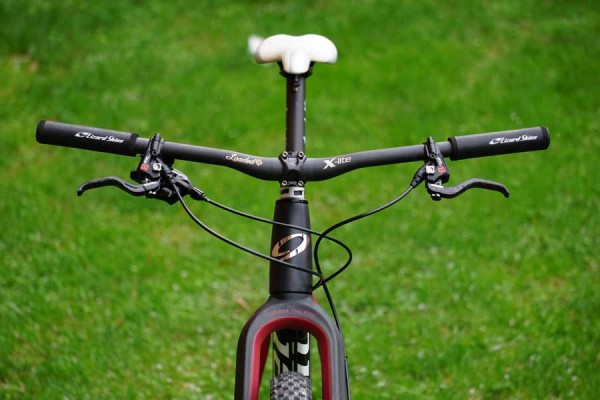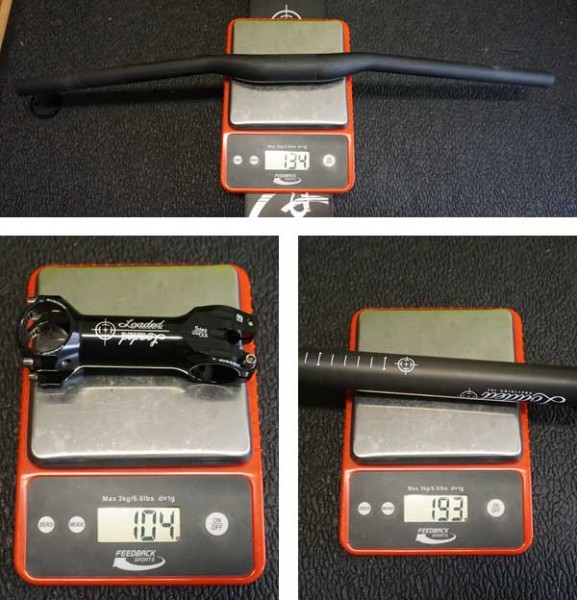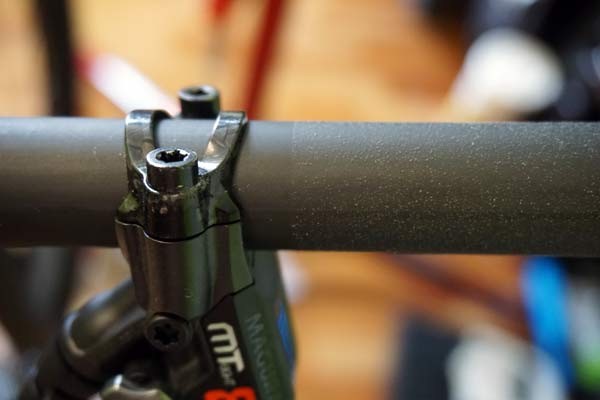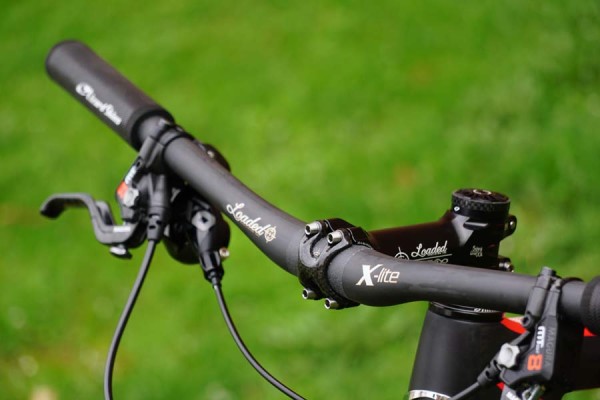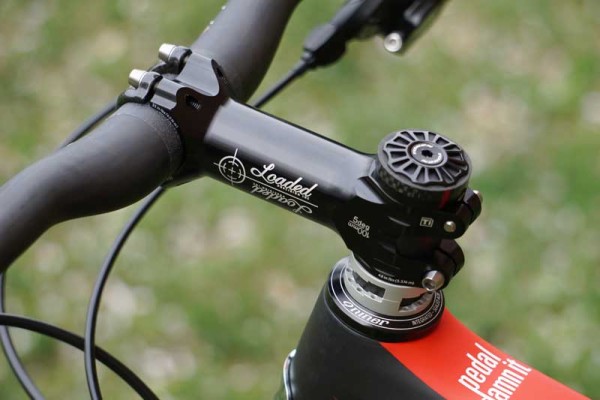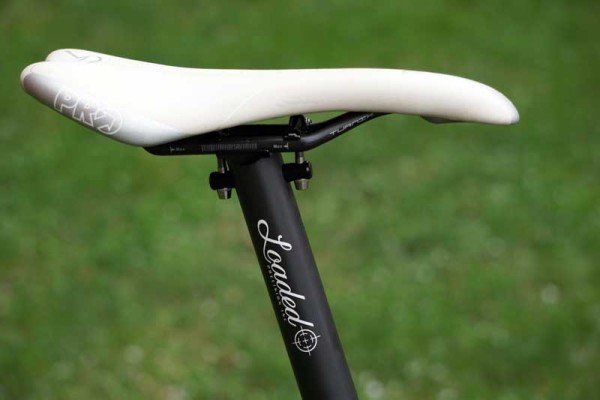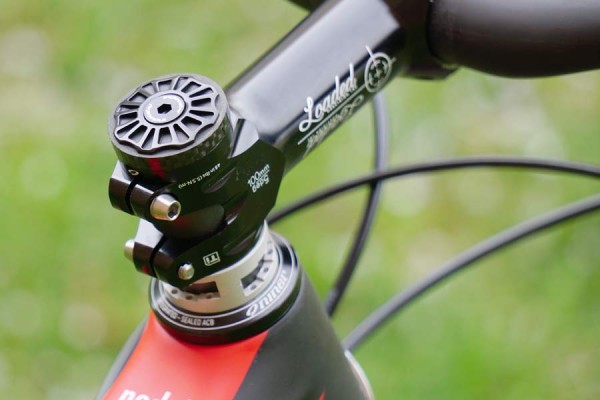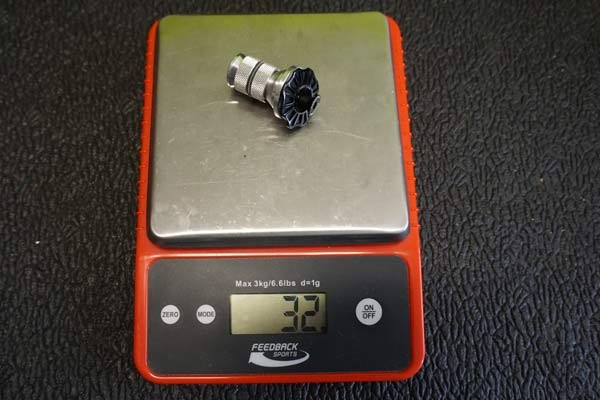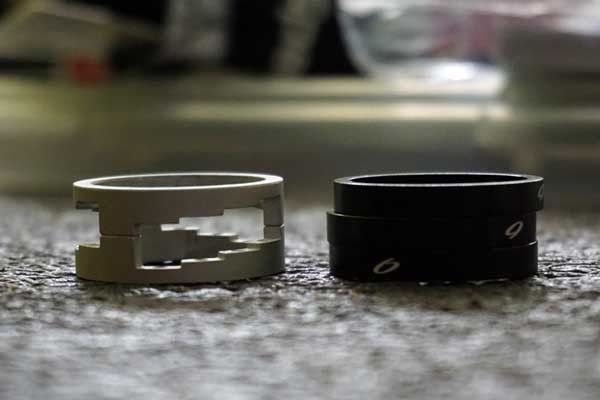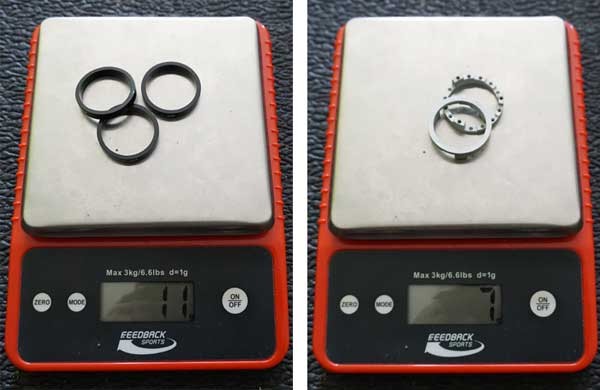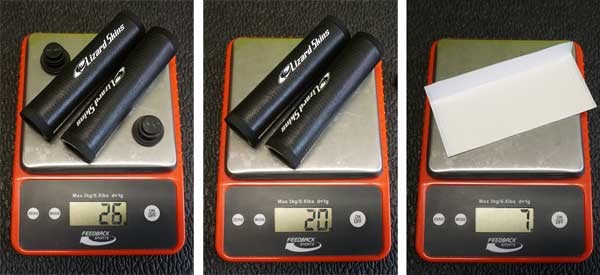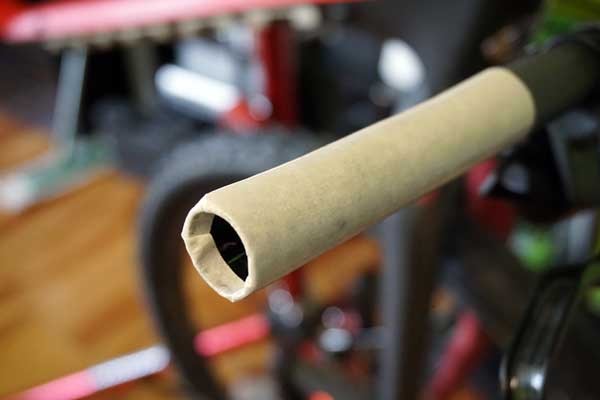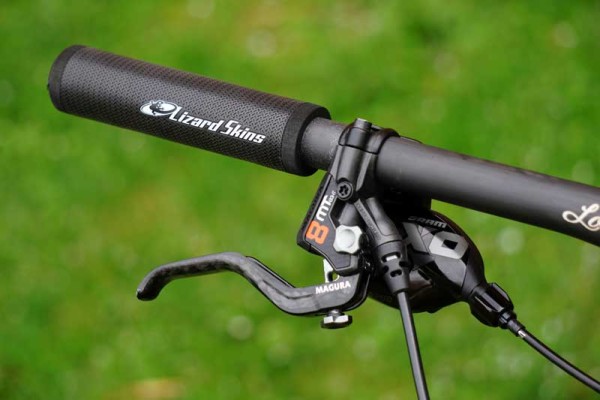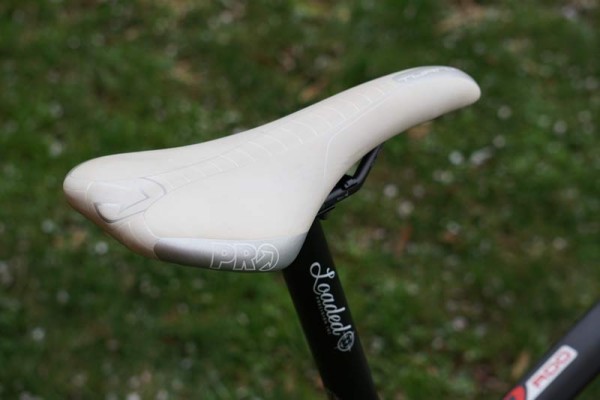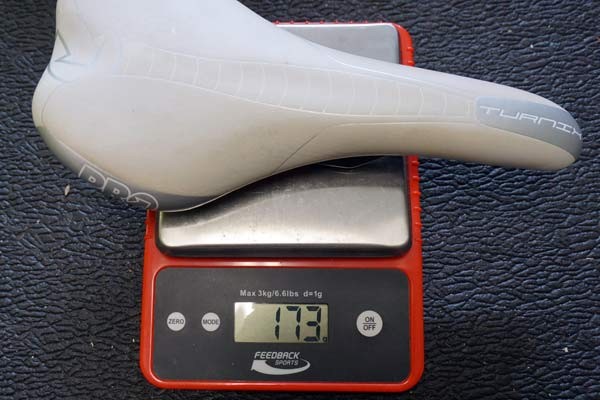After frame and fork, the cockpit and wheels are the next biggest contributors to overall ride quality. For the XC Race Rocket project bike, we chose parts from Loaded Precision, Lizard Skins, Shimano PRO, Token and Trid Designs to complete the command center.
Loaded Precision had been offering components for review for a while, but I wanted the right project that took advantage of their typically lighter-than-the-competition parts. And the X-Lite UD Carbon handlebar, X-Lite Ti stem and X-Lite Ultra Carbon seatpost are among the lightest parts they make.
They also make more aggressive, wider and enduro/gravity oriented products, too, but the weights on the XC parts jumped out as some of the best in class. That’s nothing if they don’t hold up, though, so I figured my 190 pounds could put them to a proper test.
Completing the cockpit were my trusty Shimano PRO Turnix carbon railed saddle, a Token expansion plug and top cap combo and the adjustable headset spacer from the company formerly known as Trid Designs. All of it would make contact through Lizard Skin’s cushy DSP foam grips. Get a handle on their performance below…
Loaded’s parts came in at 134g for the handlebar, 104g for the stem and 193g for the 31.6 x 400mm post.
The X-Lite UD handlebar has textured grit in the grip mounting section, helping to keep your grips from slipping or rotating.
The bar gets its incredibly low weight in part by being narrow by today’s standards. At just 680mm wide, it’s a solid 60-100mm narrower than what most folks are running on their all-mountain bikes these days. At first I was a bit concerned as I’ve grown accustomed to 720-760mm bars on my bikes, but for this bike it seems to be working. It only feels odd going back to riding my wider bars, not coming from those to this narrower bar. And, since this bike’s mostly being used for pure XC trails, I haven’t felt the need for the extra leverage a wider bar provides.
The performance of the bar seems to be just right for this type of bike, too. The layup of UD carbon fiber sheets infused with nano particles give it intentional flex. The Ninety-nine percent of the time, I like my suspension long and plush, so the added vertical flex complements the shorter travel of the Lauf fork to take just a bit more of the edge off. Standing and pressing down on the bar produces a few millimeters of movement at the ends of the bar. Lest you worry this is a quality concern, ENVE, Thomson and others also design flex into their bars for to enhance ride feel and control.
Tech specs are 9º backsweep, 6º upsweep, and 15mm rise. That combo made for a comfortable hand position throughout the six hour race and subsequent rides. The bars come with a lifetime warranty and no claimed rider weight limit, but, you know, use common sense. It’s worth mentioning that they make an even lighter handlebar with the same dimensions, too.
The X-Lite Ti stem’s name is a bit of a misnomer as only the bolts are titanium. The rest is 7075 aluminum with a carbon fiber face plate. Because I’m on the tall side of the recommended height range for the large frame size, I went with a 100mm stem to put me in an ever-so-slightly more forward racing position. I’m not fast enough to get all Kulhavy on this build.
It’s available in 90, 100, 110 and 120 lengths with +/-5º adjustment. The bolt torque recommendations are laser etched on it at either end (different values for steerer and faceplate bolts). Extensive machining around the steerer clamp section removes extra material to keep the weight down.
If there’s any torsional flex from the stem, the handlebar’s flex is masking it. Overall the front end of the bike felt plenty stable during hard cornering and furious out of the saddle sprints.
Love it or hate it, the X-Lite Ultra uses a rod-through-the-post design to hold the adjustment screws, relying on the upper clamps to pull the saddle rails onto the cradle.
It’s made of UD carbon with titanium hardware and alloy clamp and cradle. Thus far, I haven’t had any problems, setting the saddle up initially and not touching it since. Nothing’s come loose, and there’s no creaking or other noises. Like the handlebar, there’s a bit of flex from the post, which is good because Niner uses the largest 31.6 common diameter seatpost on their hardtails rather than the increasingly common hardtail spec of 27.2.
Because it’s a multi piece design, it easily works with both round and oblong saddle rails, so it should work with most carbon rails. I asked Loaded if the design was approved for carbon rails because such things should be checked if there’s no warning or explicit approval in the instructions. The edges of the clamps and cradle are smooth enough that they won’t dig into or scratch the carbon rails, and there seems to be enough support for them, too.
The Loaded parts retail for $149.99 (bar), $99.99 (stem) and $229.99 (seatpost).
The Token Arsenal Headset Cap comes with an expansion plug for carbon steerers that works by spreading two grooved half pipe pieces as the bolt is tightened. It’s the safe way to lodge itself inside of a composite tube since you shouldn’t use a traditional star nut, and it has held perfectly tight. That last bit is worth calling out because some designs don’t hold quite as securely or slip over time, but Token’s part seems to be doing the job. It’s also available in red and gold.
The top cap is machined to within an inch of its life, removing all unnecessary material to save precious grams, then sandblasted and polished. The entire assembly came in about 10-15g lighter than a basic top cap, and it looks way better, too.
I’ve had the Trid Designs adjustable headset spacer sitting around the office since we first spotted it in 2010. It just didn’t seem right for any of the builds I’ve done over the years, until now. The stair-stepped design allows it switch from 10mm to 15mm in 1mm increments. A little Googling suggests Trid Designs is no longer extant and the product is now offered by Arestic on Brakeless.ch, who also has a 15-25mm option, colors and plastic ones, too.
It weighs in at just 7g, which saves 4g over three standard alloy spacers. And it looks cool.
The Lizard Skins DSP foam grips intrigued me because they’re not made from the usual foam material used by Ritchey, etc. The squishy part is their DuraSoft Polymer, available in two diameters (30.3mm and 32.3mm), with the same grippy surface used on their DSP road bike bar tape.
I’m running the thicker 32.3mm grips, which weigh in at just 20g without the bar plugs. Add 6g for those and approximately 4g for the adhesive tape needed to stick them to your handlebars. The weight on the scale for the sticky paper includes the backing at 7g, so I’m estimating. Give or take a gram for that, they’re still very light.
Installation is simple, just clean the handlebars, wrap them with the sticky tape so that the ends wrap inside the handlebar slightly, spray it with window cleaner and slide the grips on. I sprayed quite a bit of window cleaner inside the grips and on the tape and they twisted on easily. It’s recommended to give them plenty of time to dry, so I left it overnight to cure. No idea how hard they’ll be to get off, but fortunately, they seem to be holding up very well. There’s no discernible wear or tear yet.
Once slid into place, there’s plenty of time to spin them to line up the logos as you like before they dry. Just don’t expect to slide them on and go ride immediately, they need time to dry. After that, they have stayed firmly in place with no twisting or slipping.
The cushioning is good, soaking up vibrations and taking even more of the edge off. Grip is great, too – my hands haven’t slipped a single time (with gloves, I have not tried them bare handed). Retail is $30, available in a wide range of colors.
The last piece of the puzzle was a Shimano PRO Turnix saddle. I’ve received several of these over the years from various Shimano events or for testing and love them. Having a couple around means they’re always my go-to saddle when a bike needs to be built up for testing. Being one of the most personal of items on a bike, your opinions may vary, but here’s why I like it:
It’s light, at just 173g for the carbon railed model. It’s also very comfortable for mountain biking with just enough tail kick to provide a good pedaling platform when climbing, but no so much that I can’t get off the back of it on steep descents. It’s also reasonably comfortable on road and cyclocross bikes, but my preference is on MTB.
There’s also thin, high density EVA foam padding to smooth things out, which is very helpful on a hardtail, and the carbon rails further assist. The synthetic cover material has held up incredibly well over several years of riding on both of the saddles I’ve owned, even after lending them out to friends occasionally. Even the white version cleans up nicely.
They make alloy rail versions and versions with central relief cutouts, too. Available in 132 and 142 millimeter widths.
Stay tuned for the rest of the build, and check out the frame and fork overview here!
